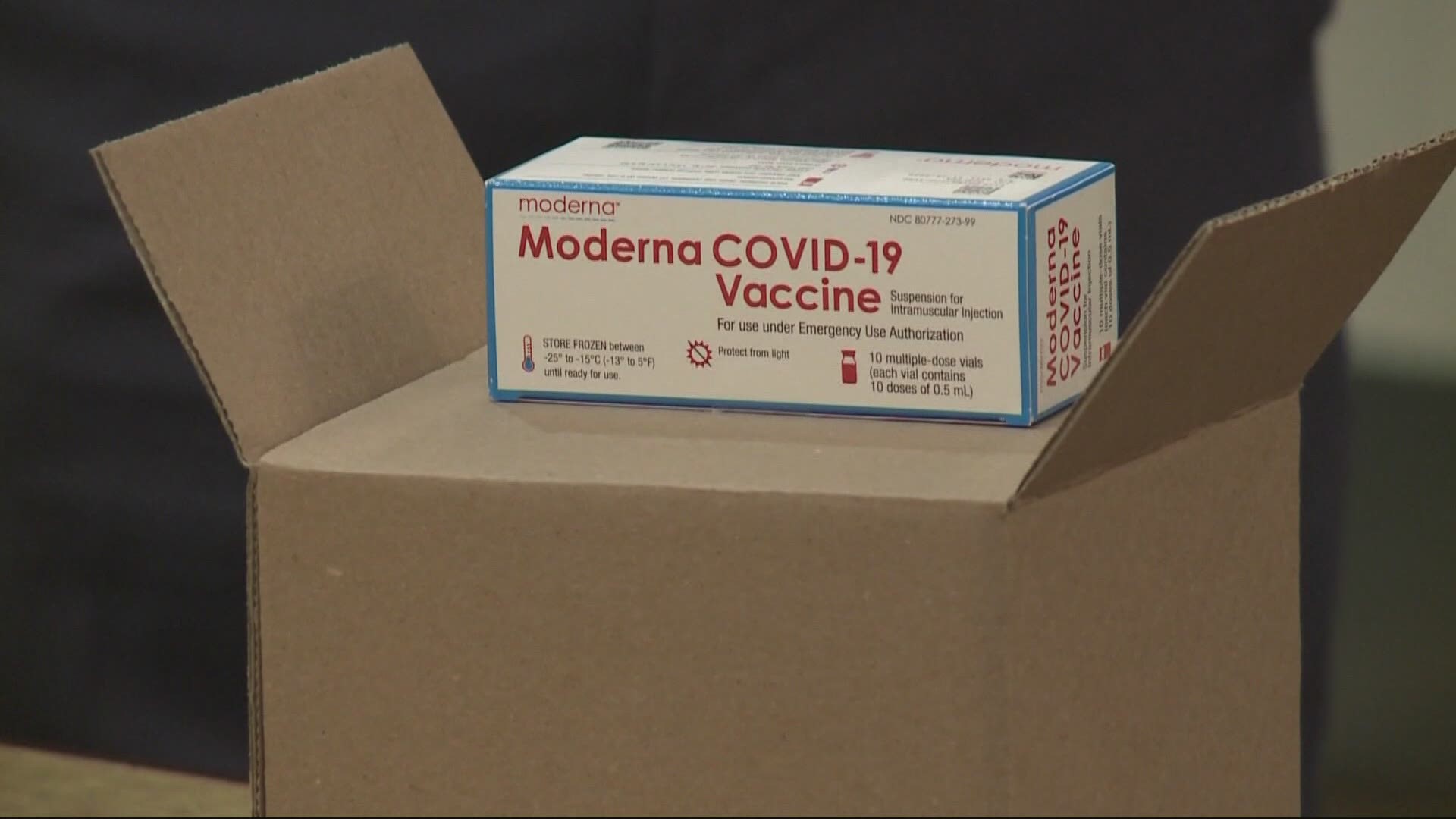PORTLAND, Oregon — For new moms, getting the COVID-19 vaccine might come with a few concerns. Pregnant and breastfeeding mothers weren't part of the vaccine trials. But a new study conducted in Portland is looking into how nursing moms might pass COVID-19 antibodies to their babies after the moms get the shot.
The study began with Jill and Jason Baird, who welcomed their baby boy Eli, in November. As a nursing mother, Jill wondered if it would be safe for her to get the COVID-19 vaccine. As a physician, she qualified to get the shot in January, but wished more information was available about the shot for new moms.
“We saw a real hole in the research,” said Jill.
The week before Jill got her vaccination, she and Jason were talking around the dinner table and got an idea.
“I was just like, ‘Hey Jason,’” recalled Jill, “‘What if you brought my milk into the lab and tested it for antibodies?’”
Jason Baird is a cancer immunologist and staff research scientist at Providence Portland Medical Center.
“We thought, wow, we should really look for these antibodies to see if there's any protection that could be passed on to our child after getting a vaccination,” said Jason.
The Bairds helped launch a small study with the help of five other new moms, all front-line employees with Providence.
“The timing was so perfect,” said Jason.
Researchers at Providence Cancer Institute and the Earle A. Chiles Research Institute, a division of Providence, studied milk samples from the mothers. Half the group received the Moderna shot, the other half got the Pfizer vaccine. Before the shot, all milk samples tested negative for antibodies. After the shot, that changed.
“We saw this spike [in antibodies] that started to climb at seven days after the first shot, and then it dips down,” said Jason. “And then you get your booster, and then you see it take off again.”
None of the babies involved in the study showed adverse side effects. The research suggests babies may be protected from COVID-19 through breast milk antibodies, but it's unclear how long those antibodies will remain in the mothers or infants. Future research may hold the answers; the Bairds are just glad the research has begun.
“We hope that women like me who are making the decision on whether or not to get vaccinated, that they have a little bit more information when they make that decision,” said Jill. “That they have some information on possible benefits for their baby.”

